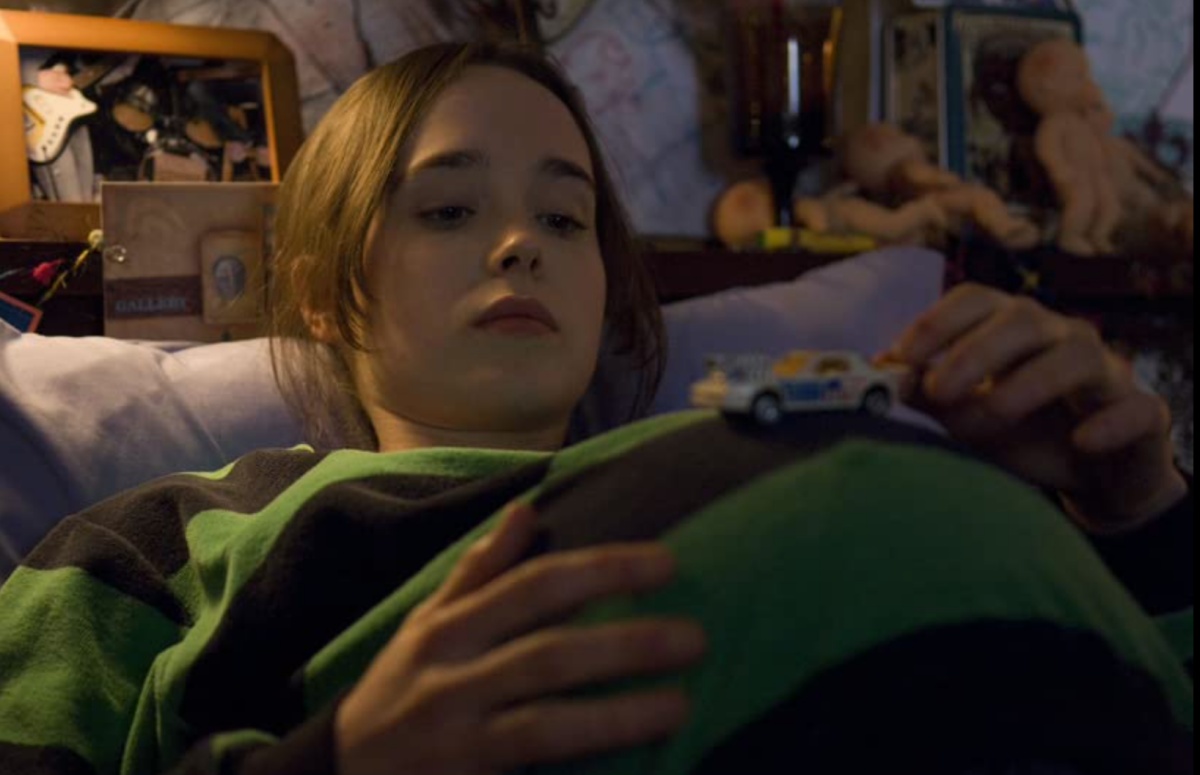Diablo Cody ‘Horrified’ by Anti-Choice Reading of ‘Juno’

In 2005, screenwriter and producer Diablo Cody got her big break with the hit indie film Juno, starring Elliot Page as the titular character, who becomes pregnant as a teen and decides to give the baby up for adoption. The film has been embraced by both pro-choice and anti-choice viewers, but after the overturning of Roe v. Wade and reproductive rights, Cody is ready to make sure the public knows where she stands.
“I wrote the movie in 2005, which is 17 years ago,” Cody says in her interview with The Hollywood Reporter. “When I look back on that time of writing the script, I feel wistful, because at the time it never occurred to me that my reproductive rights could be in danger. If somebody had said to me at the time — as a carefree, younger, third-wave feminist — that in 2022, Roe v. Wade would be overturned, I would have been horrified and I would have assumed we were hurtling toward some kind of inconceivable dystopia, and maybe I would have been right. But at the time, it just seemed impossible. I took Roe for granted, and many of us did. I was just creating; I never intended the movie as any kind of political statement at all. I can’t imagine being that innocent again.”
In the film, Juno initially goes to an abortion clinic but changes her mind after a picketing classmate, Su Chin, tells Juno that her baby probably has fingernails right now. This gives Juno pause, and while she does go inside of the clinic, she freaks out, changes her mind, and decides to give the baby up for adoption.
“I’ve stayed out of the discourse,” Cody says. Back when the film came out and did so well, there was a lot of sexism and slut-shaming around Cody due to her being a stripper and writing a memoir about it. She was a young woman who suddenly got so much critical acclaim, which meant people wanted to tear her down. That led to Cody being, as she admits, “very protective of [herself].”
“I don’t comment on my own movies very often — but I am emphatically pro-choice and have been my entire life. And it is important to me to make that clear,” she says. “But, you know, I can understand why people would misunderstand the movie. Looking back at it, I can see how it could be perceived as anti-choice. And that horrifies me. Back in 2008, I got a letter from some administrator at my Catholic high school thanking me for writing a movie that was in line with the school’s values. And I was like: What have I done? My objective as an artist is to be a traitor to that culture, not to uplift it.”
Back in 2018, when Cody first started addressing this issue, I wrote about how I first saw Juno at my all-girls Catholic High School. For me, the movie was always able to be seen by both sides. When I rewatch the film now, not much has changed on that reading. When asked about if she would change anything, and specifically asked about the abortion clinic scene, Cody expressed that the scene was always a reflection of her own experience:
When I was a teenager, I was squeamish about the physical reality of the abortion procedure. I thought it sounded scary, which is not surprising when you consider the fact that I had been bombarded with gory, misleading anti-abortion propaganda at school. And I think that’s reflected in the movie: She goes to the abortion clinic, she kind of chickens out (which is something that I would have realistically done at that age, especially given all the religious trauma I was processing at the time). I’m not scared of abortion anymore; I’ve had one now. And it was a hell of a lot less scarier than giving birth. But the movie is a reflection of how I felt as a young woman.
She added, “I’ve never really thought about revisiting the film — it kind of feels like something that should stay preserved in amber. But I would rather have this account be out there than [my] silence being misinterpreted.”
As I’ve gotten older and my experience with art evolves, I have softened in my feelings on Juno. Art can’t always be perfect, and telling an honest story can sometimes mean people completely miss the point. I think that there could have been a better way to balance Juno’s teen fear without making it seem anti-abortion, but this was Cody’s first movie. Cody was 29 when Juno came out. To a teenager, that age seemed so adult, but as a 30-year-old-woman, I know what it is like to still discover how to find truth in art, but still be honest.
I’m just glad that Cody has come out with this and affirms inclusive language about pregnancy, especially considering that the lead of Juno is a trans man.
“I’m absolutely in favor of inclusive language,” she says. “And I think it’s cool to reconsider Juno through a queer lens, knowing now that the lead actor is a trans man. Obviously, at the time, I didn’t know that. So I can’t take any credit for a radical reimagining of teen pregnancy. But I do think it’s a cool conversation. And I’m happy for us to have that representation, even retroactively.”
(via The Hollywood Reporter, featured image: Searchlight)
Have a tip we should know? [email protected]
